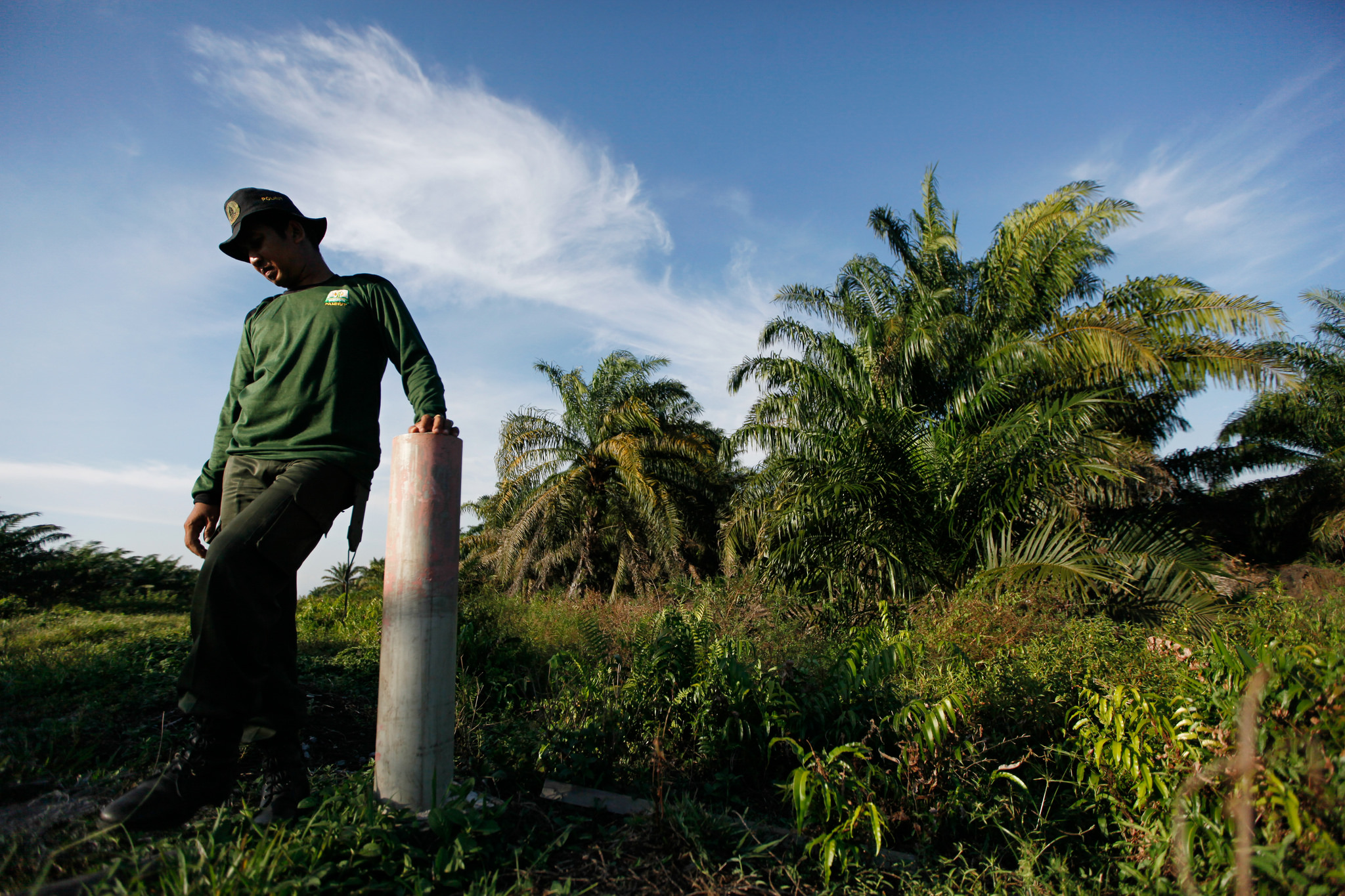 Photo: Dita Alangkara/CIFOR
Photo: Dita Alangkara/CIFOR
“The permit for the community forests: we finally got it!” Hanging up his phone, Erwin Basrin, with lights in his eyes, proudly announced the good news. For years, his organization, the Akar Foundation, had been working with villagers in Indonesia’s Bengkulu province to secure their right to manage their community forests, where they grow coffee under the trees.
But the victory felt fragile: one village was not granted a permit, allegedly due to the presence of mining operations in the claimed area. It turned out, however, that the mining company was not even registered with the Indonesian government. This is hardly uncommon: in Indonesia, large portions of lands and forests have been allocated for industrial plantations and extractive businesses with little respect for the land rights of the Indigenous Peoples and local communities occupying or claiming these areas, despite a 2013 Constitutional Court Ruling stating that customary forests should be returned to their traditional owners.
So are communities really being discriminated against when they seek recognition of tenure rights? How unfair are the laws and regulations? Is it true that companies are being favored over local communities when it comes to accessing and using land?
In an attempt to answer these questions, a study coordinated by AsM Law Office and sponsored by the Rights and Resources Initiative (RRI) was launched in Indonesia to compare the procedures for companies and communities to get permits and rights recognition in forest areas, not only as set out in legislation, but also in practice. Several criteria were identified, such as the prerequisites for legal status; the number of stages and authorities involved in the procedures; the cost and the duration of the process; and the validity of the permit granted.
On the company side, the study covered industrial timber and palm oil plantations, as well as ecosystem restoration concessions. On the community side, three schemes were selected: community forests, village forests, and the recognition of customary forests.
Despite progressive leadership and supportive policies on paper, Indonesia is still far from realizing promises made to its people to significantly expand forest tenure rights recognition, and much remains to be done to reduce the gap in economic disparities.
The key findings revealed patterns of discrimination in the legislation and bias in the implementation. First, the process of obtaining such permits or rights is easier for some, but virtually impossible for others. To obtain legal status—which is a pre-condition for claiming any right—customary communities have to go through a long and highly political legislative process, requiring the issuance of a Regional Regulation or Regent Decree to assert their existence. Meanwhile, companies only need a standard administrative registration to be legally recognized.
Second, the lobbying capabilities of corporations have certainly given them an advantage over communities. On paper, all of the permit processes are free of charge. But in practice, there is evidence of unofficial fees or bribes, with hidden costs reaching as high as US$600 per hectare for an oil palm plantation as revealed in one corruption case brought to court. Additionally, companies have the resources to follow the status of their permit application online, while individuals or community groups do not always have the same capacity or even access to the internet.
Third, layers of bureaucracy have proven to be a greater obstacle for communities than corporations. For palm oil plantations located in specific land use areas (APL) within the same province, the company only has to deal with agencies at the district and provincial levels. Meanwhile, communities always have to deal with agencies at the district, provincial, and central government levels; as a result, it has become almost impossible for communities to manage their application process without the support of an NGO.
Finally, the validity of forest use permits is longer for corporations than for communities. By law, permits delivered to industrial forest plantations are valid for 60 years—even up to 100 years for companies engaged in ecosystem restoration business. Meanwhile, the validity of permits available for communities is limited to 35 years, with the possibility of extension under certain conditions. Finally, the duration of the licensing process in cases studied is about four years for a company, whereas for communities, the time required ranges between six and 15 years.
Ultimately, the study concluded that discriminatory government treatment has led to a large gap between forest areas controlled by business entities versus areas managed by communities in Indonesia. Over 90 percent of the forest allocations researched in this study are for companies, while only 7 percent were granted to communities.
Despite progressive leadership and supportive policies on paper, Indonesia is still far from realizing promises made to its people to significantly expand forest tenure rights recognition, and much remains to be done to reduce the gap in economic disparities.
How to rebalance land and forest allocation by speeding-up social forestry and land redistribution will be among the key themes discussed at the upcoming Tenure Conference co-organized in Jakarta on the 25th to 27th of October by the Indonesian government and the CSO Tenure Coalition.

About the author: Anne-Sophie Gindroz is the Southeast Asia Facilitator for the Rights and Resources Initiative.
Interested in receiving notifications about new blog posts? Subscribe to the RRI blog now to get new posts delivered right to your inbox.
